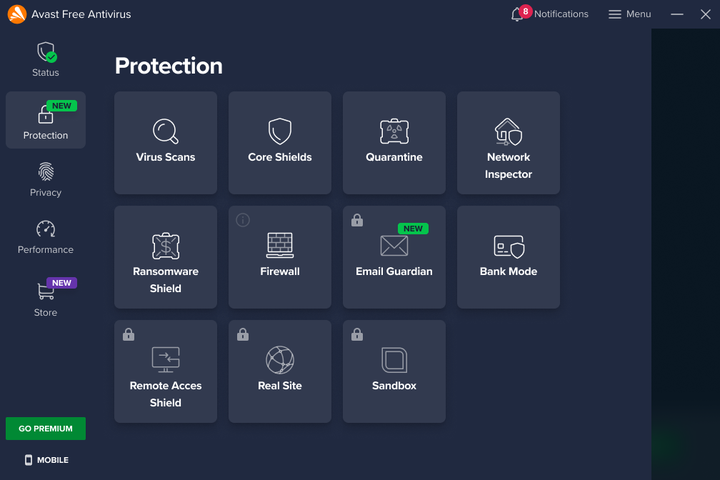A Rise in Password Stealers: How to Combat This Dangerous Malware

- January 14, 2025
- Updated: January 14, 2025 at 5:03 PM
It’s not easy to avoid harm’s way when browsing the internet. Even if we’re cautious and use common sense, we can still slip up by clicking somewhere we shouldn’t, risking it all. Although our words may sound alarming, there are many ways to stay safe—just follow our advice.
Among the many dangers we face today is the threat posed by password thieves, a very specific type of malware with a clear mission: to infiltrate our devices and monitor our passwords.
Password Thieves: What They Are and How to Spot Them
Password thieves are malware or spyware that installs itself secretly on a computer. They are also Trojan software that finds its way across a network—someone opens the wrong file in their email or runs a program downloaded from a suspicious website.
Without the user’s knowledge or consent, the file installs on their computer and starts operating in the background, undetected. It may take months to realize that passwords or data have been stolen.
Password thieves aim to capture authentication credentials but often also look for any type of confidential information.
The malware tracks login information as credentials are entered. It runs silently, gathering data as it’s typed into the machine.
The spyware actively monitors login requests, records keystroke information, and funnels the collected data to a secondary website owned by the criminal.
How to Avoid Installing a Password Thief and How to Fight Them
Below are some of the best password practices, as recommended by cybersecurity experts:
- Store all your passwords in a password manager.
- Never reuse the same password for more than one account.
- Don’t rely on a pattern you simply tweak from one account to another (for instance, using the same password but adding a number at the end).
- For security questions about passwords, don’t answer what they ask you. Chances are, you’ll always respond the same way, and that’s another vulnerability. Instead, give a nonsensical answer and record it in your password manager, noting which question you selected with the associated answer. For example, if your cat’s name was Socks, for the security question, pretend it’s “Epi,” and jot that down in your password manager so you can remember it in the future.
- If a website offers two-factor authentication, enable it. Even if an attacker obtains your username and password, this secondary authentication will keep them out of your account.
While these tips help keep our accounts safe and secure from hackers trying to steal our email, bank, or Netflix account, here’s the best advice for avoiding password thieves:
The Best Way to Detect Password Thieves
The most reliable way to spot password thieves before they cause damage is to use an up-to-date antivirus on all your computers. The antivirus searches for and detects this malware. When it identifies a password thief, it quarantines it (safeguarding and isolating it) and then safely removes it from the computer.
It’s crucial to have antivirus software installed on every computer in your household—yours, your partner’s, and your children’s—but it won’t help much if it’s not correctly configured. Make sure the antivirus regularly scans your devices and updates itself.

When choosing an antivirus (we personally always recommend Avast Free Antivirus), look for one that performs periodic scans and runs in real-time on your computer.
That’s because if it’s running in the background while you’re working—like Avast Free Antivirus does—it can monitor active processes and compare them to its threat definitions, detecting password-stealing software on the spot.
Key Takeaways
In short, to avoid getting ensnared by password thieves, follow these guidelines, and no hacker will be able to breach your computer or compromise your cybersecurity: don’t click on suspicious links, don’t store your passwords in plain text, use a password manager, and use antivirus software.
Cybersecurity is currently the most critical element of the security that surrounds us. In 2025, we simply can’t live without it, given that we manage every aspect of our lives digitally—from medical issues to finances.
Cybersecurity Fan Insight:
- Using a password manager not only keeps your credentials safe but also protects you from common phishing tactics.
- Real-time antivirus protection is essential because malware evolves rapidly, and signature-based detection alone might miss newly released variants.
- Combining strong passwords, multi-factor authentication, and real-time antivirus ensures layered security—a must-have strategy for defending against today’s sophisticated cyber threats.
Journalist specialized in technology, entertainment and video games. Writing about what I'm passionate about (gadgets, games and movies) allows me to stay sane and wake up with a smile on my face when the alarm clock goes off. PS: this is not true 100% of the time.
Latest from Chema Carvajal Sarabia
- 5 Security Resolutions for 2025 to Stay Protected Online
- We already know how much the 2025 iPhone SE will cost: finally a cheap iPhone
- These are the 6 most anticipated action movies of 2025
- These are the 7 biggest milestones in the aerospace industry so far this millennium: Review 24 years of rockets with us
You may also like

Top 5 Cybersecurity Predictions for 2025
Read more

5 Security Resolutions for 2025 to Stay Protected Online
Read more

The 6 video game sequels you didn't know existed
Read more

How can you identify a financial scam on social media?
Read more

Identity Theft Threats are growing in recent months
Read more

Connected Winter: How to Make the Most of the Season Without Neglecting Your Digital Security
Read more